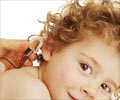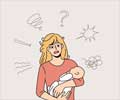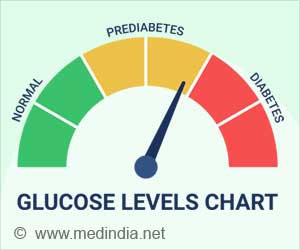Mothers suffering from post-partum depression speak more repetitively and in a non-baby-directed manner which can lead to speech problems in children.
- Postnatal depression in mothers may impact children’s speech development and overall growth
- These mothers use less infant-directed-speech that leads to language problems in the children
TOP INSIGHT
Post-partum depressed mothers tend to speak more repetitively and non-baby-directed, which might cause speech issues in young children.
Impact of Depressed Mothers and Speech Development of Infants
If individual sounds can be recognized from one another, then so can individually words. It became apparent that children display, on average, less sophisticated processing of speech sounds at the age of six months if mothers exhibit a more negative mood two months after birth. The infants had a hard time differentiating between syllable pitches. They demonstrated that children whose moms were happier had a delayed onset of their so-called Mismatch Response. The Mismatch Response is used to gauge a person’s ability to distinguish between different sounds. It is thought that there is a higher chance that a speech problem will emerge later in life if this progression towards a pronounced mismatch reaction is delayed.“We suspect that the affected mothers use less infant-directed-speech,” explains Gesa Schaadt, a postdoc at MPI CBS, professor of development in childhood and adolescence at FU Berlin and first author of the study, which has now appeared in the journal JAMA Network Open. “They probably use less pitch variation when directing speech to their infants. This also leads to a more limited perception of different pitches in the children,” she said. This perception, in turn, is considered a prerequisite for further language development.
Parents Role in Speech Development of Children
The findings highlight how crucial it is for parents to employ infant-directed speech to help their children continue to develop their language skills. Infant-directed speech is seen to be appropriate for children since it contains a wide range of pitch variations, stresses specific words more clearly, and draws the baby’s attention to what is being said. In turn, mothers who are depressed frequently speak in a more repetitive, non-baby-directed manner. “To ensure the proper development of young children, appropriate support is also needed for mothers who suffer from mild upsets that often do not yet require treatment,” Schaadt says. That doesn’t necessarily have to be organized intervention measures. “Sometimes it just takes the fathers to be more involved.”Source-Medindia
 MEDINDIA
MEDINDIA





 Email
Email










